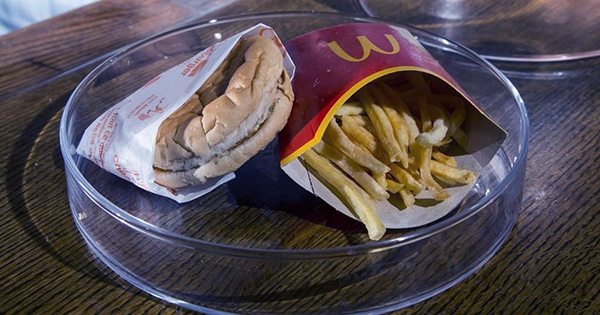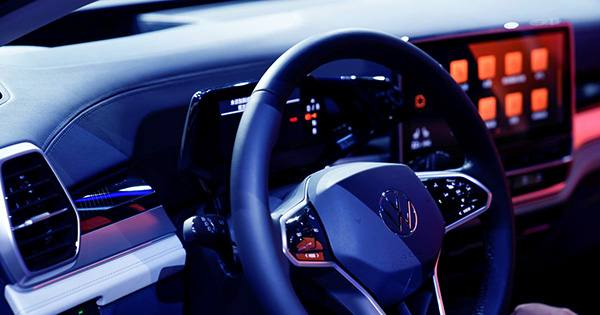Five years later, a lady who placed a cheeseburger in her wardrobe as an experiment and then forgot about it has discovered it. It looked almost precisely the same as when it was first presented to her in McDonald’s, which was somewhat unsettling. Megan Condry of Washington, DC, told the New York Post that she was organizing her Christmas decorations when she knocked over a box and a disturbingly fresh cheeseburger spilled out. She said the burger was odorless and looked “exactly the same as the day I bought it.” There were, however, a few noticeable distinctions.
She described it as “rock hard, as hard as a hockey puck.” “It’s probably strong enough to break a window.” Condry isn’t the first person to try something like this. Many people have noticed that when stored under specific settings, McDonald’s burgers don’t appear to age all that much on the outside, despite the fact that you’d be in for some serious gastrointestinal trouble and/or death if you ate an old burger.
McDonald’s is aware of the claim and has responded, emphatically denying that its food will ever go bad. “Our burgers, like most other meals, might degrade in the correct climate,” they write in a blog post about the subject. “However, in order to degrade, certain circumstances must be met, most notably moisture. Bacteria and mold cannot thrive in the absence of moisture, either in the food or in the environment, therefore decomposition is rare.”
“Take a closer look; the burgers you’re viewing are most likely dried up and dehydrated, and far from ‘as fresh as the day they were bought.'”This explanation is supported by evidence. J. Kenji López-Alt, a chef and culinary consultant for the site Serious Eats, conducted a series of tests to discover why McDonald’s burgers refuse to die like other burgers. He evaluated McDonald’s burgers, as well as other burgers cooked to the same form and size, before preserving them for long periods of time, after ruling out preservatives by looking at the patty and bun components.
“Chemicals, a lack of nutrition, or anything else you should be afraid about have nothing to do with why a McDonald’s burger doesn’t decay. It all boils down to the presence of water “He wrote about it in a blog post. “Because a McDonald’s hamburger is small and thin, it has a high surface area to volume ratio. On a very hot griddle, it is fried to perfection. These elements cause rapid moisture loss, resulting in a burger that dries out before it begins to decompose.
Furthermore, the burgers are cooked to a very high temperature in a food-safe environment, killing any germs, and are thus largely free of decay agents, to begin with.” He goes on to suggest that McDonald’s burgers with a lower surface area – or those kept in damp surroundings – breakdown in a more usual manner. In the meantime, he discovered that burgers of the same size and form as McDonald’s were maintained in the same way.
















